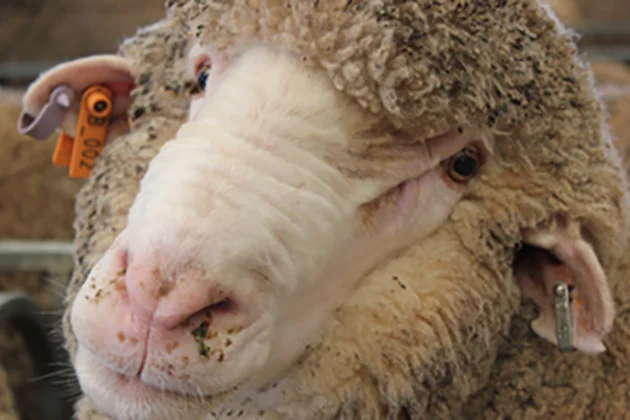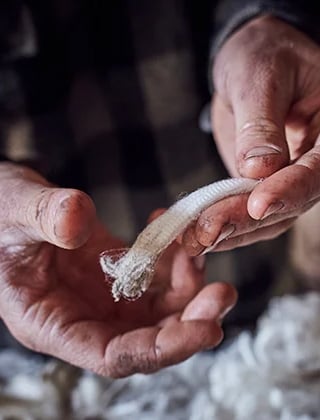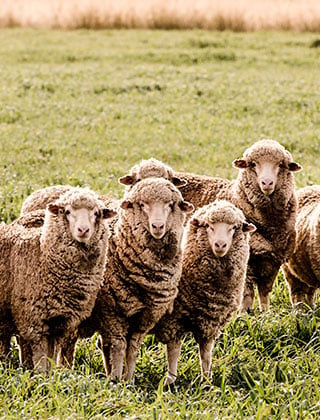Know your micron - anytime, anywhere
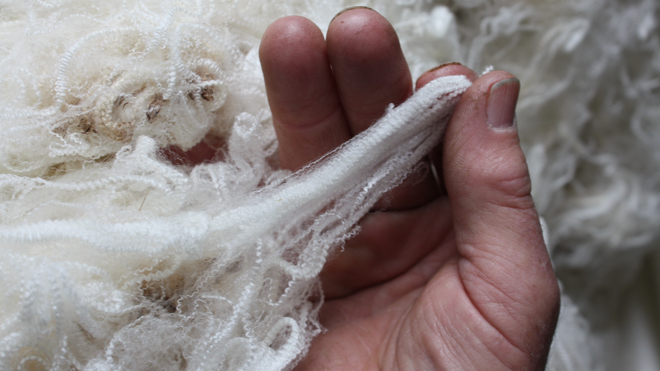
Adelaide-based technology company Woven Optics has developed a hand-held device that will provide woolgrowers with a reliable tool to measure wool micron on-farm in real-time.
Woven Optics co-founders Ben Pullen and Vicky Alexandrou, together with their team, have been working on the hand-held micron testing device for the past six years. Talking to farmers and other stakeholders within the wool industry, it became clear to them that on-farm micron testing was costly, time consuming and often impractical. Leveraging their expertise in medical science, Vicky and Ben set about building technology to change this – and established Woven Optics.
In 2018 the team was joined by Tom Ashby of North Ashrose Merino, who continues his family's more than 100-year tradition in wool as a Merino stud breeder based a few hours north of Adelaide. Together, the team grew the idea before partnering with Heiniger Australia to develop the technology from concept to reality.
How to operate the device
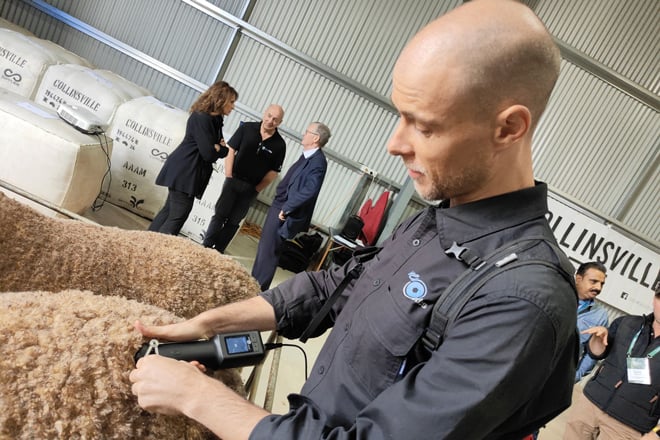
Ben Pullen of Woven Optics demonstrating the portable fibre micron testing device to IWTO Congress delegates on-farm at Collinsville Stud Merinos.
The device can be used on or off the animal and with almost any length of raw wool. The technology was developed for Australian farms, with no need for cloud or off-site connectivity during use and a rechargeable battery delivering at least eight hours of use before needing to be charged.
To operate the device, the user first scans the eID tag of the sheep using the machine’s inbuilt eID scanner before using the machine’s hand-held unit to capture an image of the animal’s wool staple. Within 10 seconds the device automatically generates a micron measurement, as well as associated statistics such as standard deviation, coefficient of variation and comfort factor, all linked to the sheep’s eID number. This allows the data to be downloaded for record keeping or further analysis by the farmer.
Depending on the grower’s needs, they can take multiple measurements from the same staple, or from different locations on the animal – as a predictor of the average micron on the mid-side, or a test of the difference in micron between areas on the same animal. It all depends on what the user wants to know and can be tailored accordingly.
Results presented at IWTO Congress
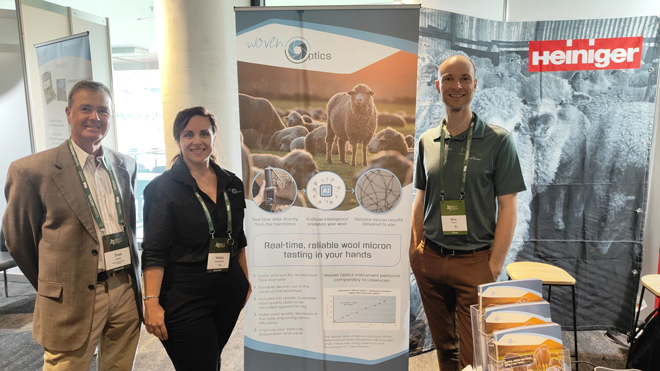
The Woven Optics team of Tom Ashby (North Ashrose Merino) and co-founders Vicky Alexandrou and Ben Pullen at the recent IWTO Congress in Adelaide.
At the recent International Wool Textile Organisation Congress (IWTO) held in Adelaide, Woven Optics presented its results of testing calibrated wool top samples with the device.
The device was tested using industry standard methods, to identify how it performed alongside existing testing technologies, such as the Laserscan.
An R² of 0.995 shows a very strong correlation between the Woven Optics wool scanner and the Laserscan, meaning the two systems produce nearly identical results when measuring fibre diameter of International Standard Interwoollabs reference tops. This suggests the Woven Optics system provides highly reliable and consistent micron measurements comparable to industry-standard equipment, when used according to the methods outlined in the 2024 IWTO report.
The Woven Optics team is building on this breakthrough by leveraging their science backgrounds to run on-farm studies nationally to further validate the performance of the device using greasy wool.
Having proven the fundamentals, woolgrowers will soon have access to this exciting new portable tool as the Heiniger team takes the lead on the next phase of on-farm field tests in the second half of this year.
Benefits of the device
Some of the key benefits of this exciting technology identified by growers include reducing flock feeding costs by making quicker decisions on which animals to keep or cull, the ability to test their whole flock with less labour costs and even having greater confidence in buying rams if a buyer uses the device on sale day. There is also the ability to grade sheep into micron classes for shearing, or testing wool at shearing in real time to assist the classer to more accurately class the wool clip in terms of fibre diameter.
Furthermore, the ability to track micron fibre diameter data on individual animals over their lifetime will allow producers to better manage flock genetics.
“It’s taken us longer than we initially expected, but the key message we received from growers and industry was to ensure the technology is ready for market, easy to use and accurate, before launching,” said Woven Optics Managing Director, Dr Pullen.
“We are now in the last phase of in-field testing with our distribution partner, Heiniger Australia, to ensure we have everything right and we can deliver a game-changing product for the sheep industry.”
If you would like to know more or get involved in the Woven Optics Early Adopter program, please visit their website for more information.
More information: www.wovenoptics.com
This article appeared in the June 2024 edition of AWI’s Beyond the Bale magazine. Reproduction of the article is encouraged.






